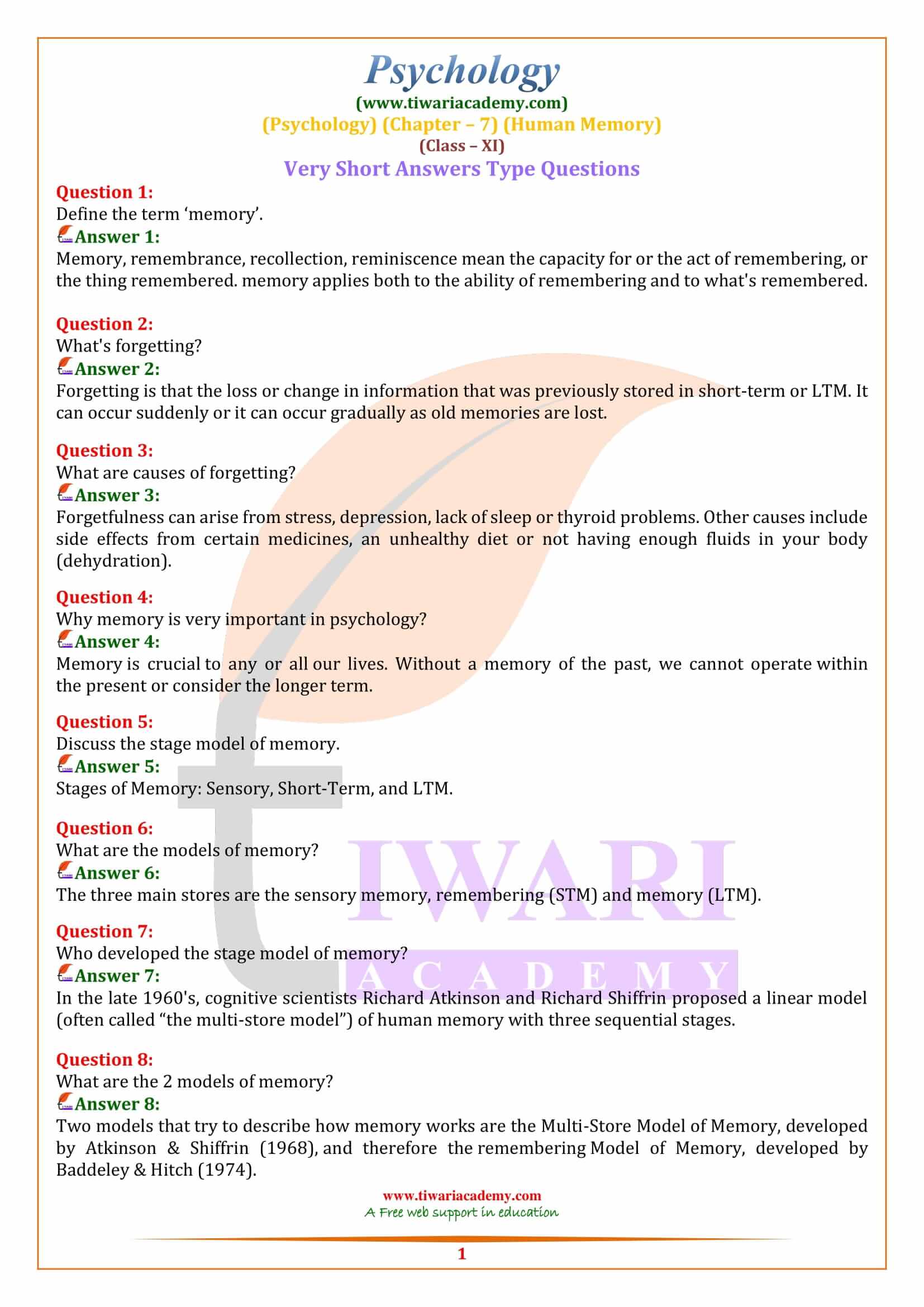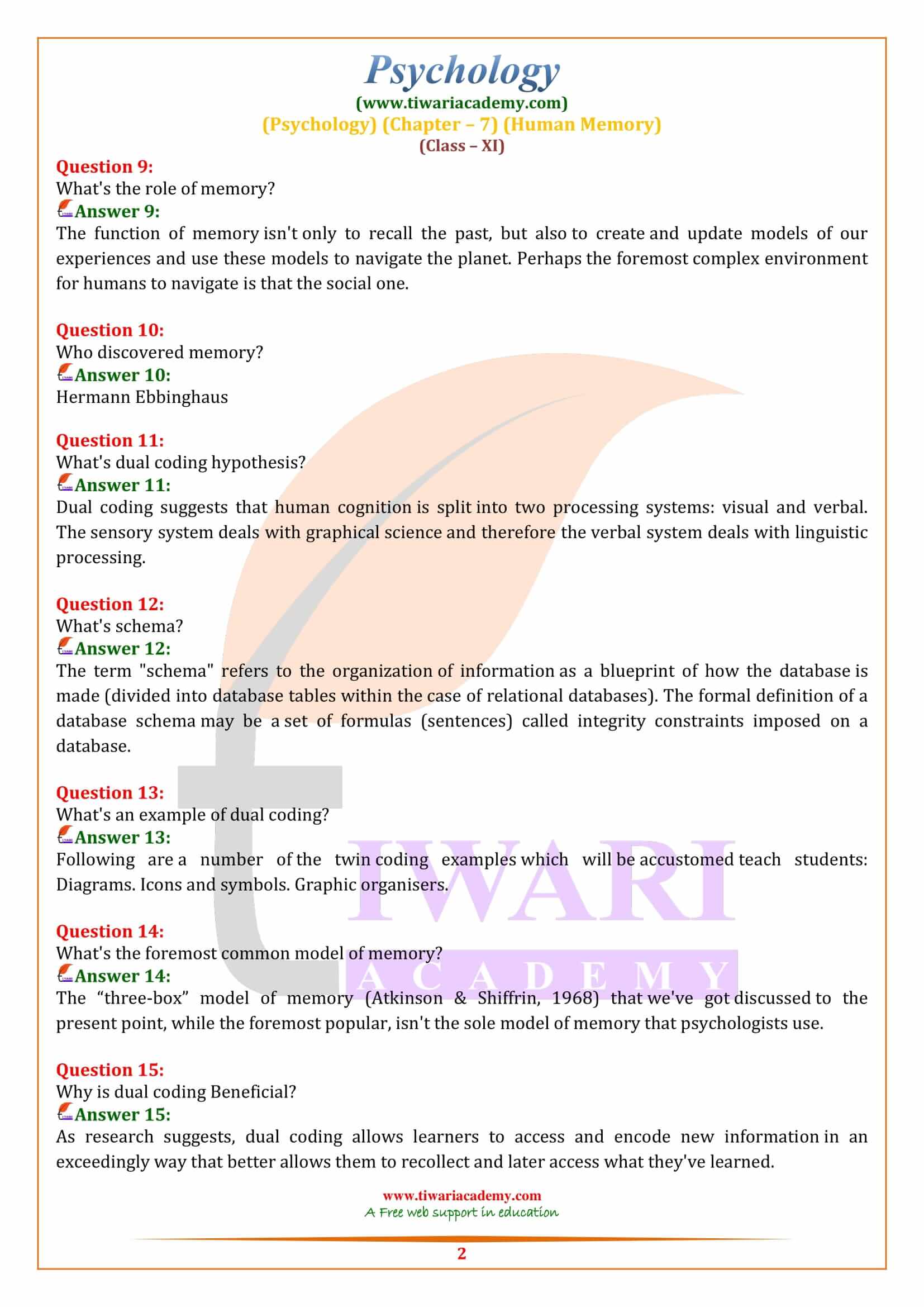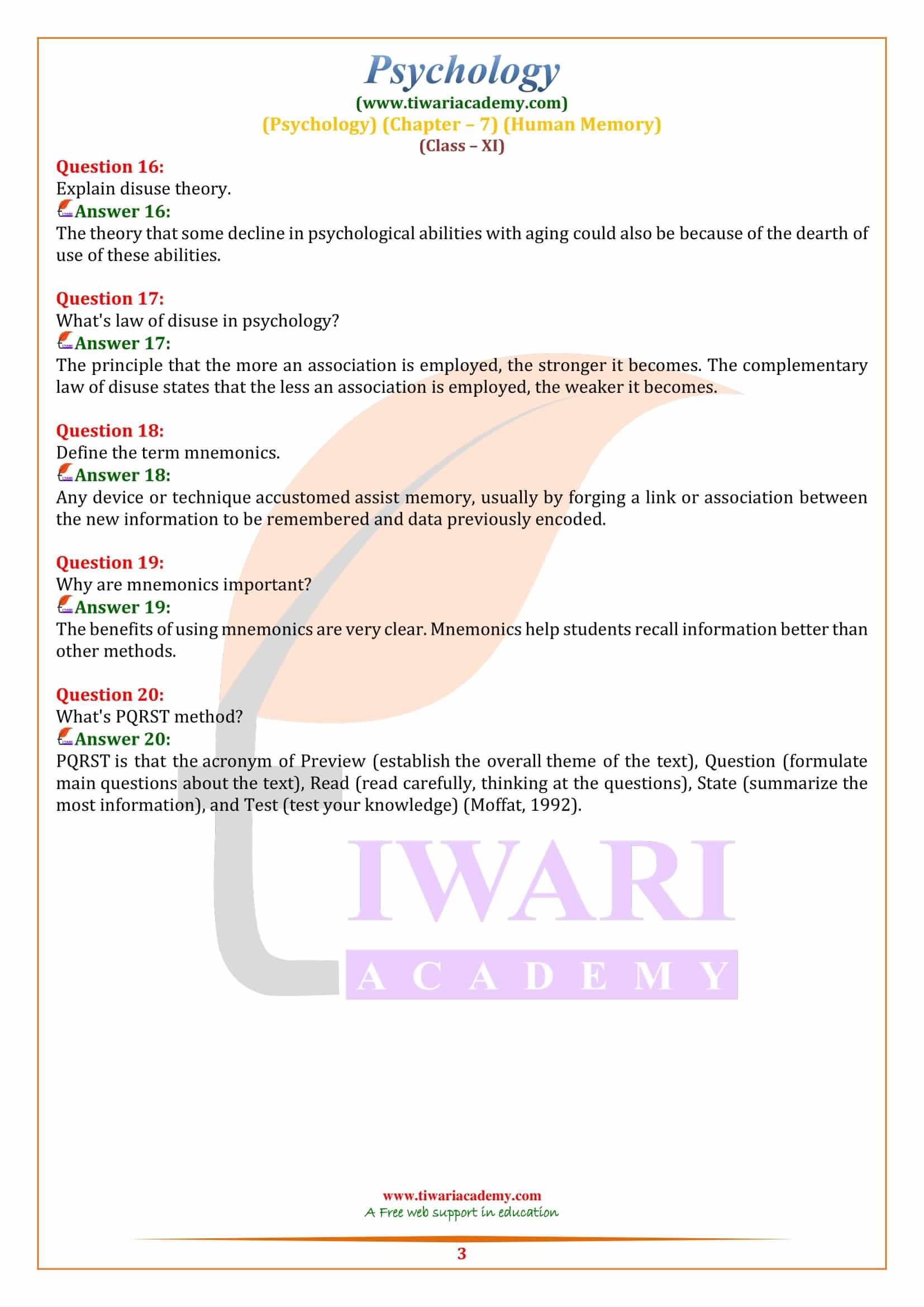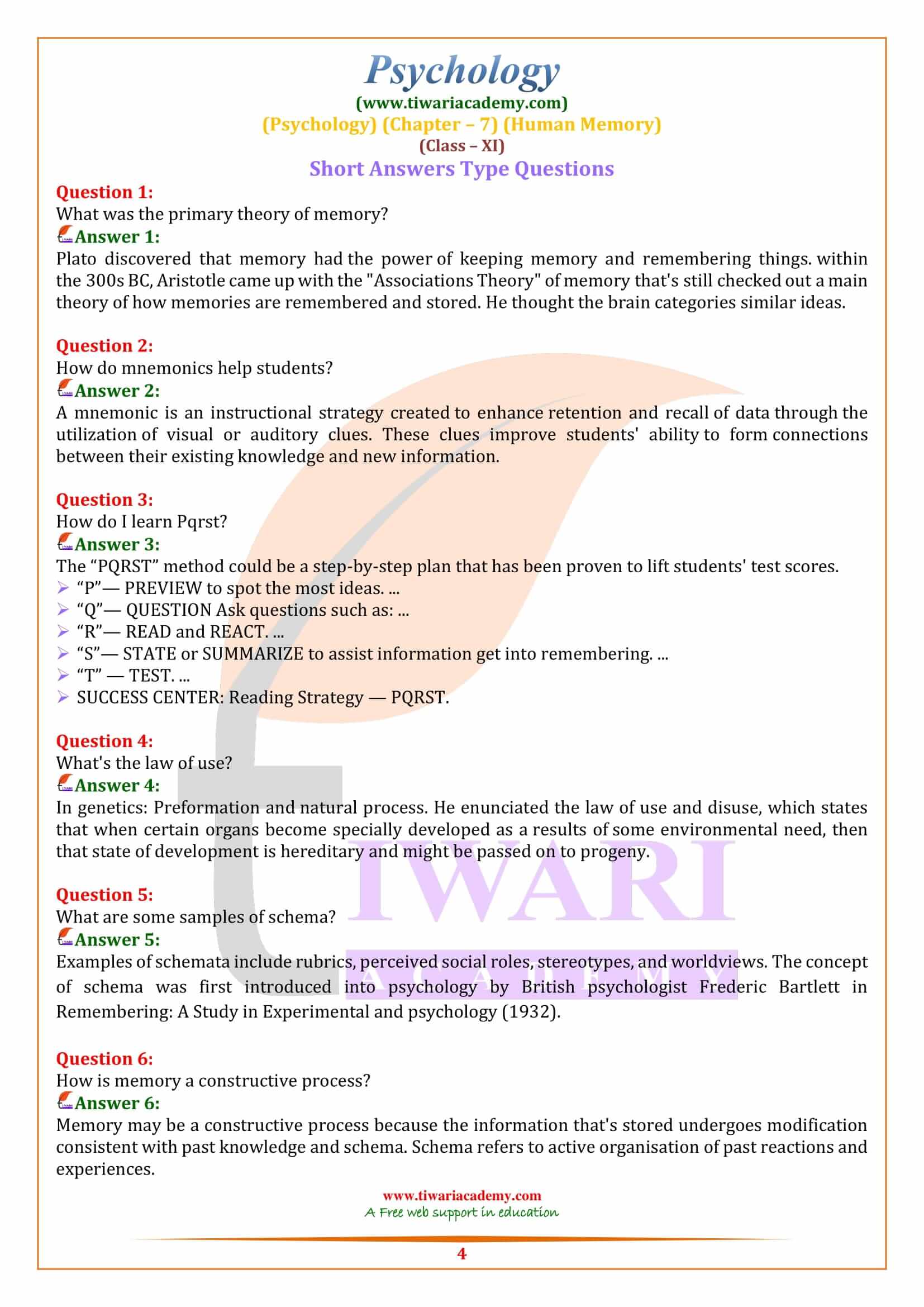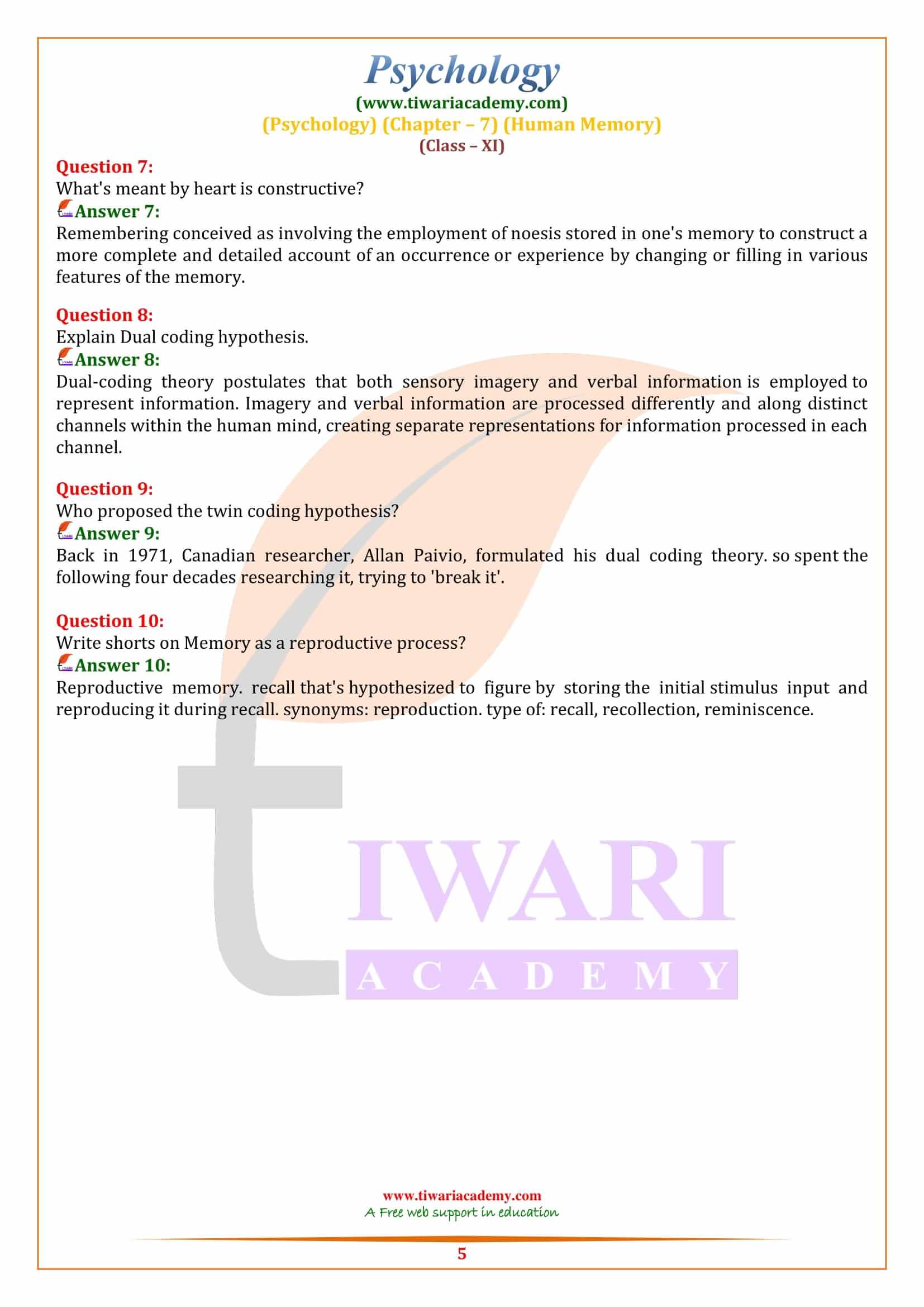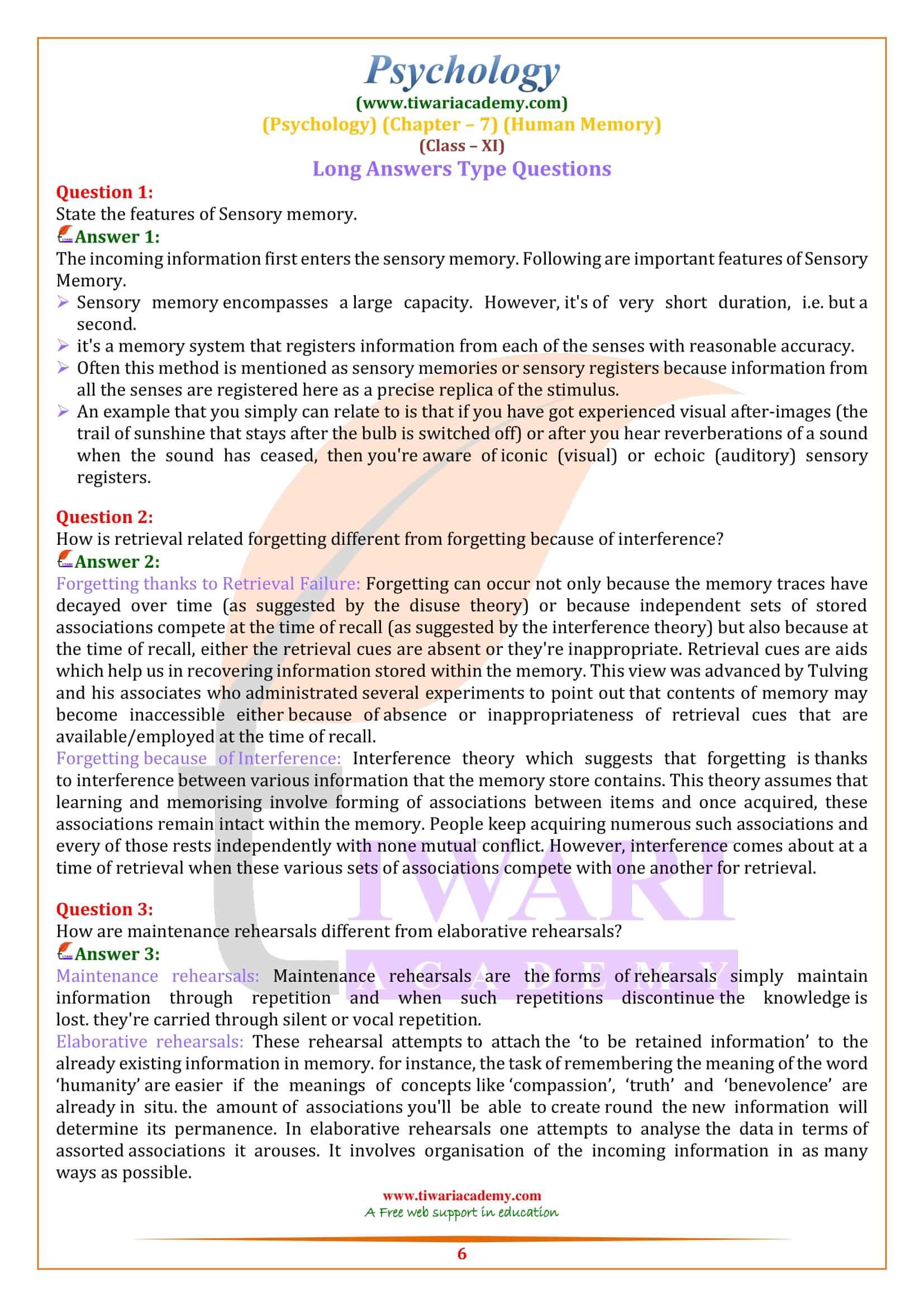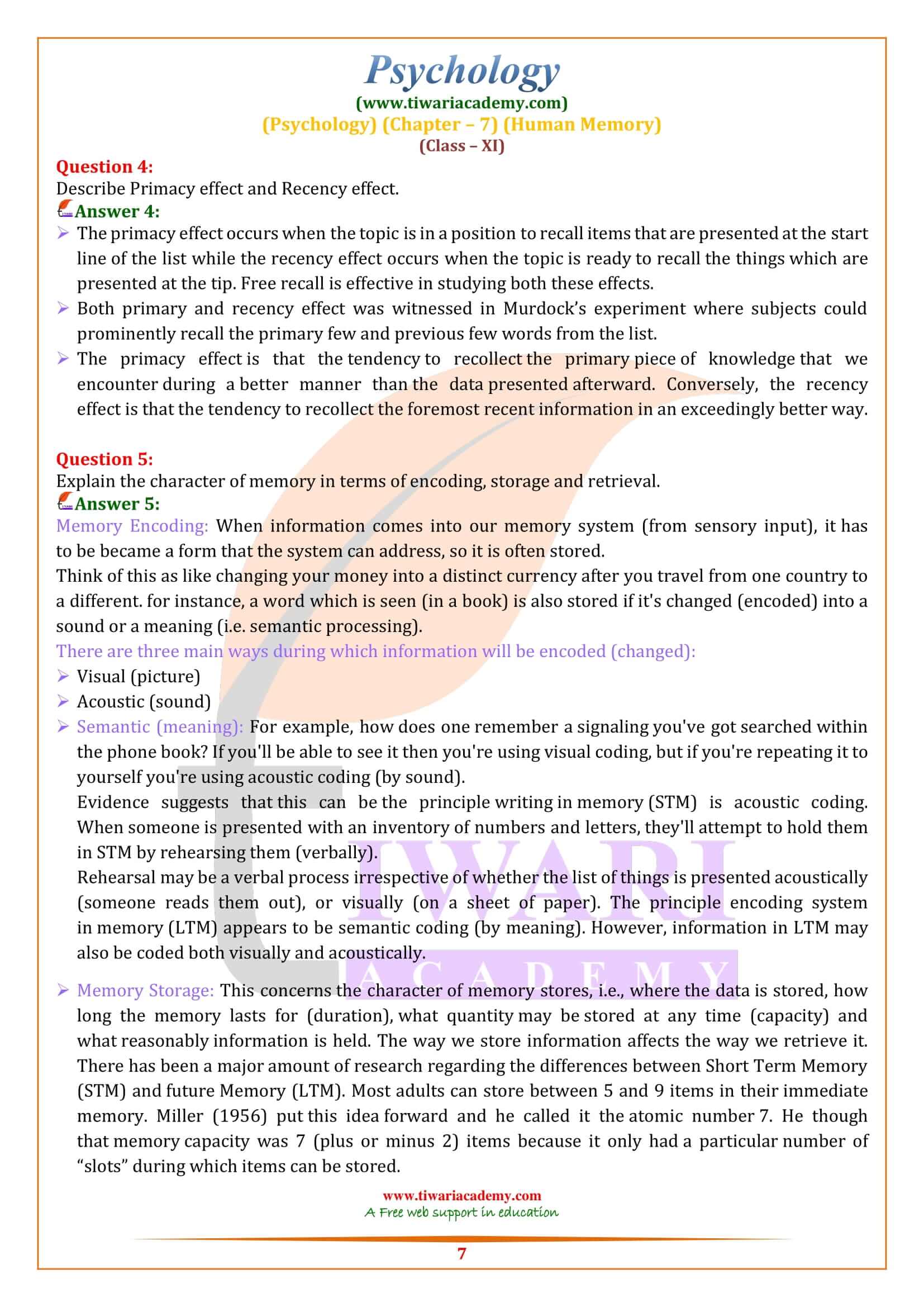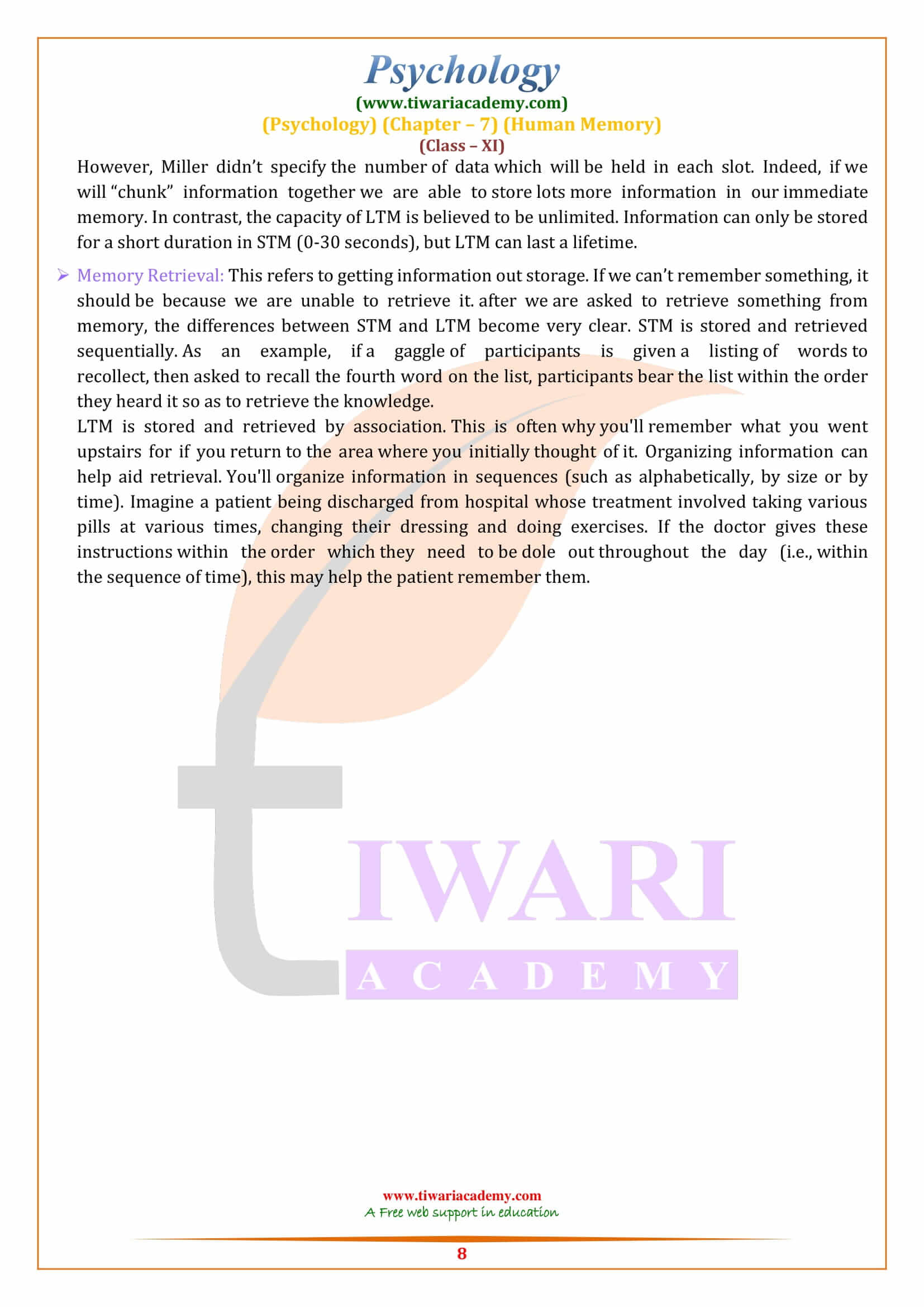Class 11 Psychology Chapter 7 Important Questions Human Memory in English Medium updated for CBSE session 2024-25. Class 11 Psychology chapter 7 Extra Question Answers provides important practice study material confined to NCERT along with multiple choice questions explanation.
State the features of Sensory memory.
The incoming information first enters the sensory memory. Following are important features of Sensory Memory.
Sensory memory encompasses a large capacity. However, it’s of very short duration, i.e. but a second.
It’s a memory system that registers information from each of the senses with reasonable accuracy.
Often this method is mentioned as sensory memories or sensory registers because information from all the senses are registered here as a precise replica of the stimulus.
An example that you simply can relate to is that if you have got experienced visual after-images (the trail of sunshine that stays after the bulb is switched off) or after you hear reverberations of a sound when the sound has ceased, then you’re aware of iconic (visual) or echoic (auditory) sensory registers.
How is retrieval related forgetting different from forgetting because of interference?
Forgetting thanks to Retrieval Failure: Forgetting can occur not only because the memory traces have decayed over time (as suggested by the disuse theory) or because independent sets of stored associations compete at the time of recall (as suggested by the interference theory) but also because at the time of recall, either the retrieval cues are absent or they’re inappropriate. Retrieval cues are aids which help us in recovering information stored within the memory. This view was advanced by Tulving and his associates who administrated several experiments to point out that contents of memory may become inaccessible either because of absence or inappropriateness of retrieval cues that are available/employed at the time of recall.
Forgetting because of Interference: Interference theory which suggests that forgetting is thanks to interference between various information that the memory store contains. This theory assumes that learning and memorising involve forming of associations between items and once acquired, these associations remain intact within the memory. People keep acquiring numerous such associations and every of those rests independently with none mutual conflict. However, interference comes about at a time of retrieval when these various sets of associations compete with one another for retrieval.
How are maintenance rehearsals different from elaborative rehearsals?
Maintenance rehearsals:
Maintenance rehearsals are the forms of rehearsals simply maintain information through repetition and when such repetitions discontinue the knowledge is lost. they’re carried through silent or vocal repetition.
Elaborative rehearsals:
These rehearsal attempts to attach the ‘to be retained information’ to the already existing information in memory. for instance, the task of remembering the meaning of the word ‘humanity’ are easier if the meanings of concepts like ‘compassion’, ‘truth’ and ‘benevolence’ are already in situ. the amount of associations you’ll be able to create round the new information will determine its permanence. In elaborative rehearsals one attempts to analyse the data in terms of assorted associations it arouses. It involves organisation of the incoming information in as many ways as possible.
Describe Primacy effect and Recency effect.
The primacy effect occurs when the topic is in a position to recall items that are presented at the start line of the list while the recency effect occurs when the topic is ready to recall the things which are presented at the tip. Free recall is effective in studying both these effects.
Both primary and recency effect was witnessed in Murdock’s experiment where subjects could prominently recall the primary few and previous few words from the list.
The primacy effect is that the tendency to recollect the primary piece of knowledge that we encounter during a better manner than the data presented afterward. Conversely, the recency effect is that the tendency to recollect the foremost recent information in an exceedingly better way.
How is memory a constructive process?
Memory may be a constructive process because the information that’s stored undergoes modification consistent with past knowledge and schema. Schema refers to active organisation of past reactions and experiences.
What’s meant by heart is constructive?
Remembering conceived as involving the employment of noesis stored in one’s memory to construct a more complete and detailed account of an occurrence or experience by changing or filling in various features of the memory.
Write shorts on Memory as a reproductive process?
Reproductive memory. recall that’s hypothesized to figure by storing the initial stimulus input and reproducing it during recall. synonyms: reproduction. type of: recall, recollection, reminiscence.
Explain Dual coding hypothesis.
Dual-coding theory postulates that both sensory imagery and verbal information is employed to represent information. Imagery and verbal information are processed differently and along distinct channels within the human mind, creating separate representations for information processed in each channel.
